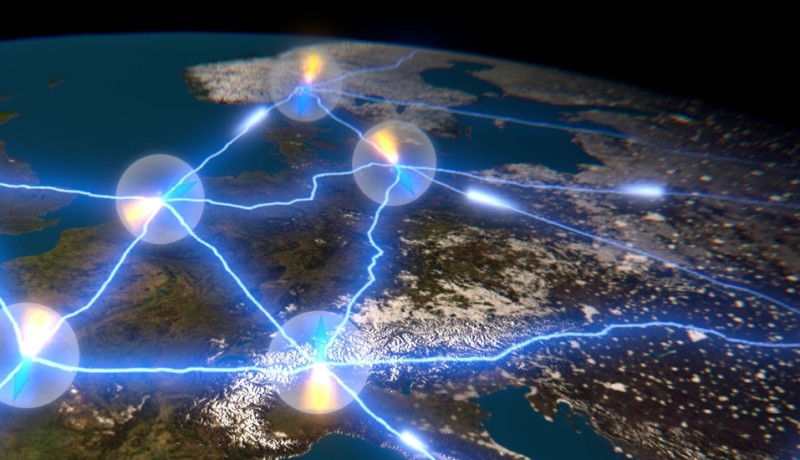Quantum Internet One Step Closer
June 20, 2019
on
on

KPN and QuTech have recently signed a joint venture agreement, directed towards the realisation of the quantum internet. KPN supplies the infrastructure and facilities that QuTech, a collaboration between the TU Delft and TNO will use for research and development.
This agreement is an important milestone towards the first quantum network in the Netherlands. This network, based on quantum entanglement, will connect several Dutch cities in a rudimentary quantum network. The joint venture with KPN forms an essential step in bringing quantum technology closer to the ultimate goal, namely that everyone in Europe – and ultimately the world – can make use of the quantum internet.
Several EU member states have recently signed a declaration to work together on a space and terrestrial infrastructure for quantum communications. This cooperation between KPN and QuTech ensures that the Netherlands will play a significant role in this developing ecosystem.
More information about the quantum internet can be found in the Quantum Internet Magazine.
Source: TU Delft
Quantum bits
The quantum internet is an optically connected network of (small) quantum computers. Such a network enables the exchange of quantum bits between the connected quantum processors, that can solve problems that will always be out of reach of the classical internet. For example, consider the very accurate synchronisation of clocks and the secure access to quantum computers in the cloud. Another very desirable application of the quantum internet is the inherently secure communications and guaranteed privacy, guaranteed by the fundamental laws of quantum mechanics.This agreement is an important milestone towards the first quantum network in the Netherlands. This network, based on quantum entanglement, will connect several Dutch cities in a rudimentary quantum network. The joint venture with KPN forms an essential step in bringing quantum technology closer to the ultimate goal, namely that everyone in Europe – and ultimately the world – can make use of the quantum internet.
Online security
This cooperation while making the first connections will hopefully lead to a more secure and innovative post-quantum future, because the arrival of quantum computers will ultimately render a large part of the current encryption technology unsafe. The improvement of online security is a top priority for KPN and the cooperation paves the way for a new, quantum-based internet.Several EU member states have recently signed a declaration to work together on a space and terrestrial infrastructure for quantum communications. This cooperation between KPN and QuTech ensures that the Netherlands will play a significant role in this developing ecosystem.
KPN
KPN is the leading telecommunications operator in the Netherlands. In 1881 it started with the construction of the national public telephone network in the Netherlands and with this introduced the country to the wonders of telecommunications. This was the basis of the current widespread KPN network throughout the country. Today, KPN is building the Dutch digital highway of the future, will roll out fibre to more than 1 million households during the period 2019-2021 and improves its mobile network to be ready for 5G, the next generation of mobile technology.QuTech
QuTech is the advanced research centre for Quantum Computing and Quantum Internet, a collaboration founded in 2014 by Delft University of Technology (TU Delft) and the Netherlands Organisation for Applied Scientific Research (TNO). In 2015 QuTech made an important step towards connecting several cities in the Netherlands with a rudimentary quantum network: the first ‘loophole-free Bell test’. This showed that two remote systems – in this case 1.3 kilometres apart – can have an instantaneous connection. QuTech also leads the European Quantum Internet Alliance in the EU Flagship on Quantum Technologies.More information about the quantum internet can be found in the Quantum Internet Magazine.
Source: TU Delft
Read full article
Hide full article



Discussion (0 comments)